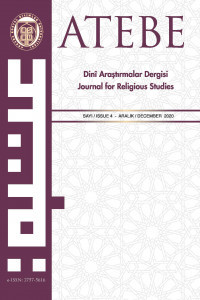Bilgi Sosyolojisi ve İslam Araştırmaları: Bir Sosyal Bilimler Felsefesi Çalışması. Adil Çiftçi. Ankara Okulu Yayınları, 2015, 189 s. ISBN: 9789944162210
Bu kitapta İslami ilimlerin sosyal bilimlere olan ihtiyacı, metinleri anlamada metinlerin oluştuğu tarihsel bağlamın önemi, geleneğe farklı bir tarzda yaklaşmanın mümkün olduğu ve bu yaklaşım sayesinde farklı manalara ulaşılabileceği gibi konular işlenmiştir. İslami ilimlerin de nihayetinde belirli bir tarihsel ortamda insan eliyle meydana geldiği vurgulanarak din sosyologlarının bu alanlarda araştırma yapmaları temellendirilmiştir. Yöntemsel olarak teologlardan daha üstün gördüğü sosyal bilimcileri bu alanda çalışma yapmaya davet eden yazar, kitabında buna öncülük etmiştir. Teori ağırlıklı anlatımda örneklere yer verilmiş olsa da, kitabın genelinde daha çok örneğe ihtiyaç duyulduğu söylenebilir. Sade ve anlaşılır bir üslup benimseyen yazar, bazen izaha muhtaç ifadeler kullanmıştır. İslami ilimlerle ilgili terminolojinin sık kullanılmayışı, yazarın bazı yerlerde kendi yöntemiyle çelişmesi, akademik bir çalışmada kullanılması yadırganacak birtakım ifadelere yer vermesi kitabın eksik görülebilecek yönleri arasındadır.
Bilgi Sosyolojisi ve İslam Araştırmaları: Bir Sosyal Bilimler Felsefesi Çalışması. Adil Çiftçi. Ankara Okulu Yayınları, 2015, 189 s. ISBN: 9789944162210
In this book, subjects such as the need of Islamic sciences to social sciences, at understanding the texts the importance of the historical context in which texts are formed, that it is possible to approach to the tradition in a different way and thanks to this approach, that it can be reached different meanings are discussed. Emphasizing that Islamic sciences eventually came into being in a certain historical environment by human hands, the research of sociologists of religion in these areas is grounded. The author who invited social scientists whom he considered to be methodically superior to theologians to work in this field, pioneered this in his book. Although examples are included in his theoretical expression, it can be said that more examples are needed throughout the book. The author, who adopts a plain and understandable style, sometimes used expressions that need explanations. The fact that the terminology related to Islamic sciences is not used frequently, the author’s contradiction with his own method in some places and the use of some expressions that would be found strange to use in an academic study are among the aspects of the book that can be seen incomplete.
